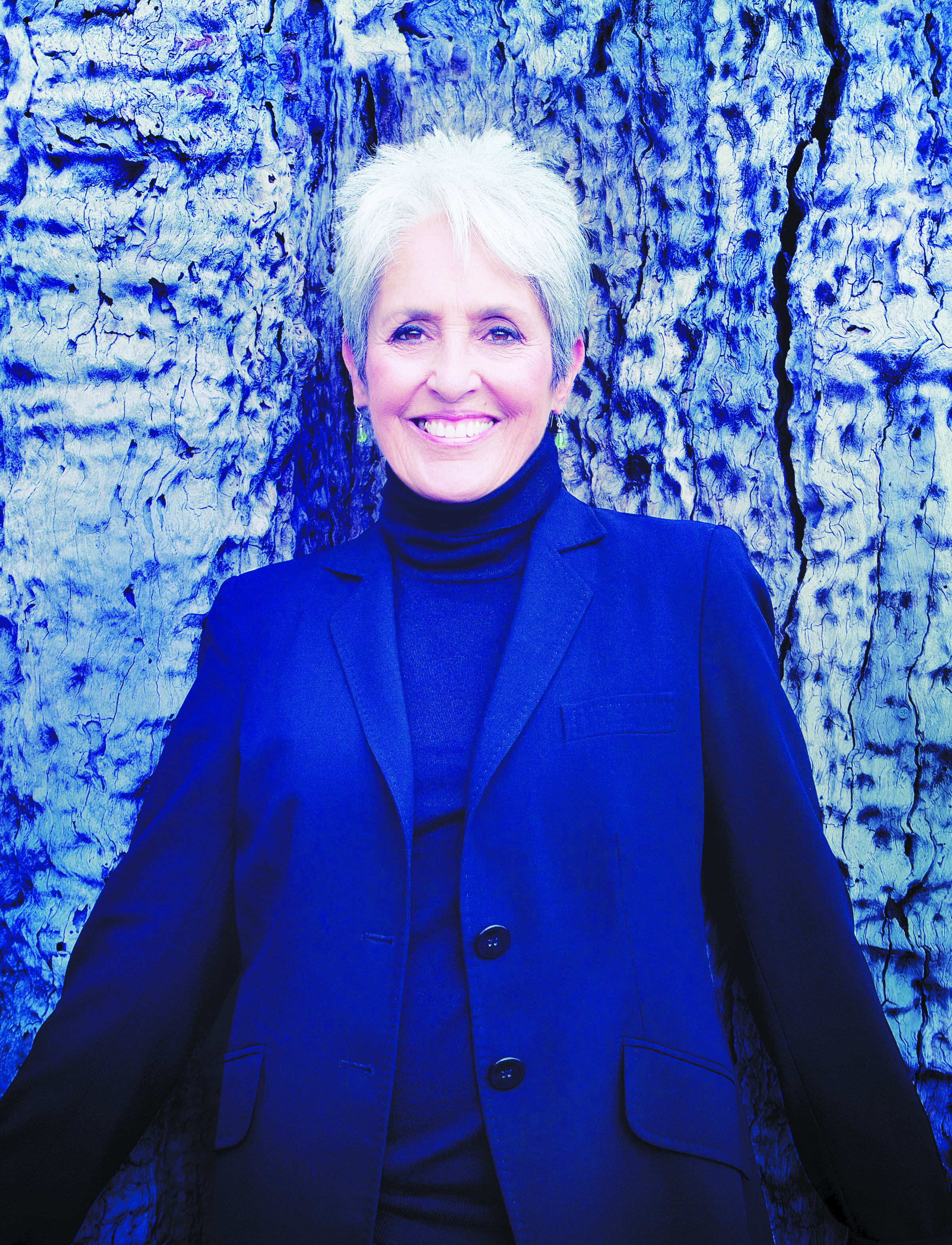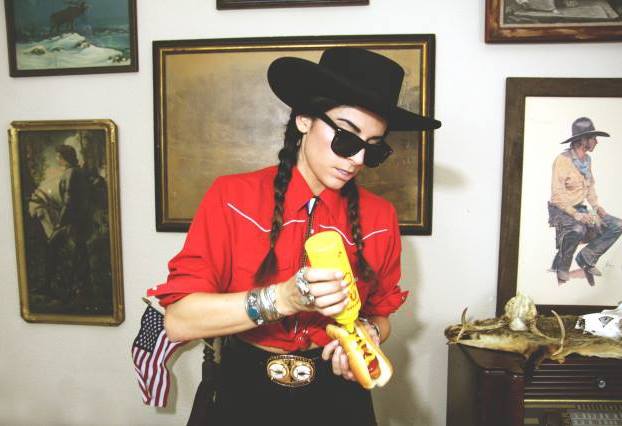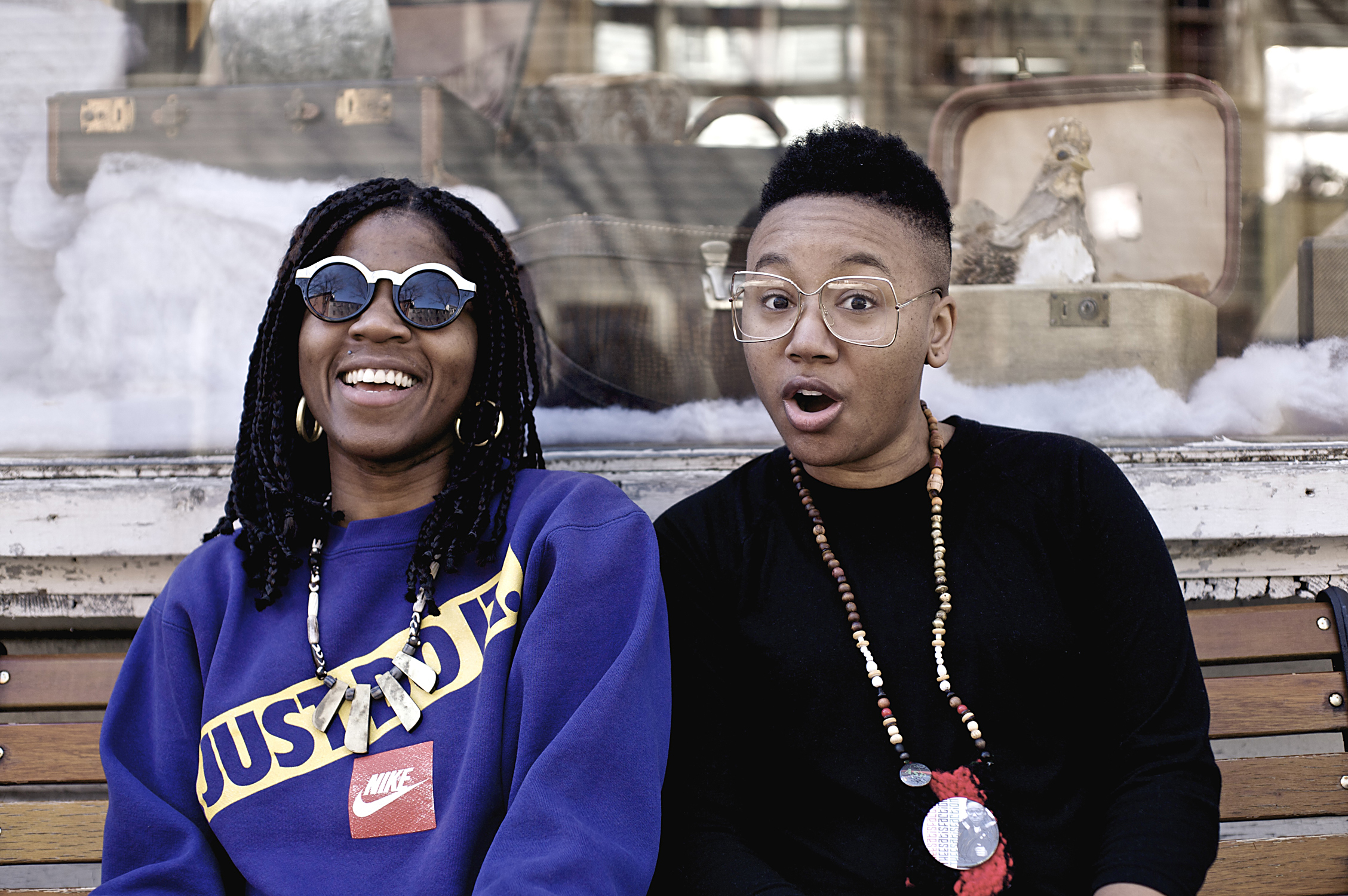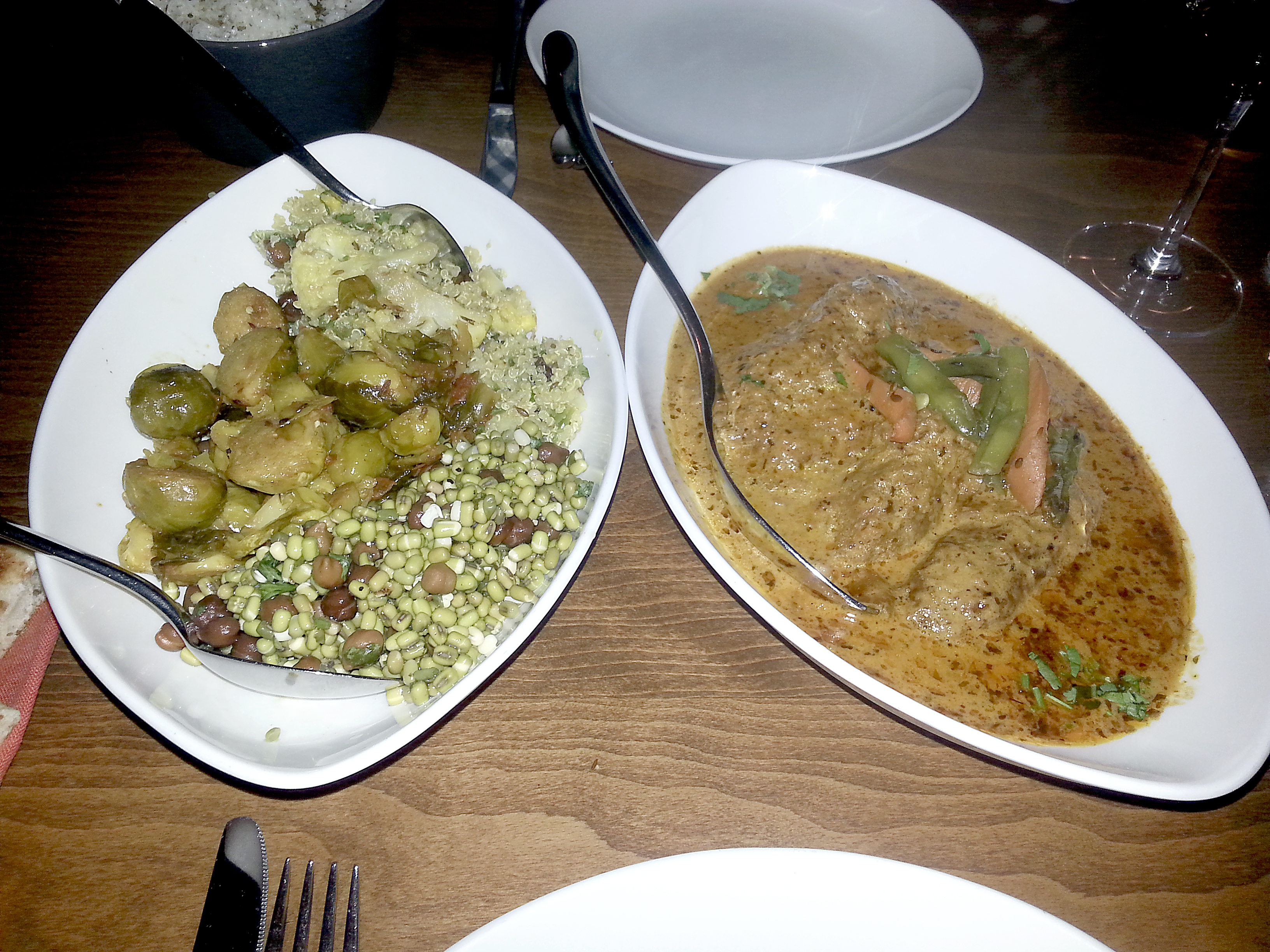Though she’s best known for interpreting the songs of others, Joan Baez’s career is unquestionably her own. It spans more than 50 years, from humble beginnings on the Cambridge, Mass. coffee-shop scene to playing world stages as a highly visible social and political activist and proponent of nonviolence. It’s studded with distinctions—like the Recording Academy’s Lifetime Achievement Award and peace and humanitarian honors too numerous to mention—and unforgettable moments: rallying with Nelson Mandela and Cesar Chavez, introducing the world to Bob Dylan, and surviving the U.S. Christmas bombing of Hanoi while she was in the region visiting American prisoners of war.
These days, at 73, the noted soprano is still singing and sharing her story. She called Seattle Weekly from her San Francisco–area home a few weeks ago and spoke about her life, issues close to her heart, and returning to South America, where now-toppled dictatorships once banned her from performing.
SW:
What was it like returning to South America? It’s been 30 years since you played there.
Baez: Not only that, but when I did go last time, I was not allowed to sing, which is very flattering, you know. But I hadn’t really sung there in forever, so that was exciting. There, some musicians I’ve listened to and some I’ve never met shared the stage with me, and that was exciting for me as well as the public.
How were the crowds?
The crowds were stunning—it’s an interesting time period for them. Even the young people who didn’t live under the dictatorships know—it’s almost cellular—they know about those times and what happens. Those times are remembered just when I walk out onstage, and people get very emotional about it, as they should, really.
What social issues are most compelling to you today?
There are many that are compelling, but what [I’m most concerned about is] global warming. That’s an important issue. It’s the hardest to tackle. We don’t believe we’re going down, and it’s too hideous to think about: the species of animals we’re losing, the environment we’re losing, the songbirds we’re losing. We kind of live in a denial, which you kind of have to, to some degree. If I weren’t in denial part of the time, it would be too sorrowful to go on.
What I do now with my life is spend a lot of time at home, which I didn’t do for all the ’60s and ’70s—I was gone and not near my family. The other day, what I realized is that I go and sing out on the road, I do that about a third of the year. And I seem to remind people of things. The most common response backstage afterwards is, “Thanks for reminding me. Reminding me of what I’d forgotten.” People really did get so not willing to take risks, and not willing to sacrifice. [The post–Civil Rights era] became an era of a lot of greed. So I think just to be out there and to talk about that, to remind people of the beauty of song—right now I’m in a period of my life [when] that’s what I’m doing a lot of.
What are your thoughts about the role of protest music today, in the digital age?
I think people are searching for songs that have some deeper meaning. What’s missing at the moment, I think, is an anthem. We need to have at least the feeling of a movement. There was that feeling for quite a while with Occupy, and when Obama ran for president. When he got into office, it was nearly impossible to maintain any of that. But that feeling—at least young people knew that we had each other, a feeling that we could make a change, literally, with each other. Maybe out of that some songs would have come; I don’t think they had the time.
Also, you have to recognize the time period of the mid- and early ’60s were years of some outlandishly extravagant talent. Tremendous talent that is not going to be repeated, in that sense. So now it’s like, “What do we do with what we have?” I think there are a lot of good songs being written, a lot of good songwriters. Another issue is, what’s the platform for that? For us way back then, it went from the underground to the cultural. And it hasn’t done that, and I don’t know what the ingredients are, to make that possible and necessary.
How have you gauged the artist’s, and the public’s, response to Ferguson?
It’s really interesting. I think the people who organized in Ferguson really set a good role model for issues that are bound to come that are like that. They managed to sit on their rage and do something more intelligent than be angry. And organize and continue in the path of a nonviolent organizer like [Dr. Martin Luther] King. People who worked with King went there to help. Those are the only ways we’re going to get through, if we manage to maintain caring and not let the revenge take over. I remember once I was with King, in Birmingham, in a church, and some Ku Klux Klan [members] started picketing outside. Someone in our group started shouting, “Oh, they’re out there, the fucking Klan!” And he said, “If we can’t love those white brothers, we don’t have a movement.” Pretty radical. At least in Ferguson, some of the rhetoric and some of the honest feeling and prayers were genuine about that sentiment.
Has anyone, any artist, participating there stood out in your mind as a potential anthem-maker?
I think it would depend on how the stars lined up. And how inspired and how talented [the artist is]. An anthem is probably the most difficult thing to write. I would never attempt it—it would be so self-defeating I’d be exhausted. I don’t know who can do it, what it has to come out of. “We Shall Overcome” came out of deep politics and deep organizing, and Seeger and another very gifted man, Guy Carawan. When I picture that song in my mind, there’s so much action around it. So much activity and togetherness.
Is anything like that even possible now?
Well, nothing’s possible until it’s done. But you know, I think that’s part of what we do during what I call “the meantime.” We lay down the path towards whatever comes next. Maybe we’re making a pathway or living a life when the next moment arrives; the nature of it will depend on what we’ve been doing in the meantime.
You mentioned Pete Seeger. What are your reflections in light of his passing and the legacy his gift of music has given the world?
It was huge, what he gave the world. All these places that I have traveled, his name comes up: He’s sung there, he’s had his translators there. He was my first role model I had for [the question] “How do we put the music and politics together?” He not only showed me but inspired me, to the point that I abandoned my rhythm-and-blues career on the ukulele and started playing folk songs.
In what ways do you see the old folk canon influencing today’s musicians?
I think there’s no way to pretend that we don’t come out of what we’ve heard. I’m fortunate enough to have people say to me, “Because of you, I picked up the guitar.” That’s all encouraging, and that’s how it’s supposed to happen. You get inspired and you pick up the guitar and you start playing.
What comes to mind when you reflect on what you’ve accomplished and how your work has been embraced by later generations?
I know what the experience was like for your parents, but I don’t know what it’s like for a young person. When I was in Belgrade, I was astounded—there were so many young people, and there it’s clear: It’s still the remnant s of the politics and the suffering their parents went through.
There were many people still feeling the effects of the war?
What I was amazed and so happy about was it was the only place where ticket prices were an issue. They had to be high for us to do it, to go there and pay for it, and we thought it wasn’t going to sell out. But then it filled up, completely, and [tour officials] said the pay is so little there that [citizens] wait until the end of the month to figure out what they’re going to do with that extra money, and the place was filled with, say, 30-year-old kids. Not filled, but way more than other places.
What advice do you have for all-female rock groups, like Kashmir’s Pragaash or Russia’s Pussy Riot, who have been threatened, jailed, and tortured for speaking out against their governments by playing music?
Those are the risk-takers. I’m always amazed and thrilled to see that that goes on. The key is: Who’s doing what they sing about? That’s always been a question. I think there were more people [relying] on safety in numbers, and there was more comfort in numbers back [in the ’60s].
Today, there’s not much you can rely on in numbers. I mean, when the Dixie Chicks made that [2003 anti-Iraq War] comment, they didn’t have much support from other people in the industry.
They did from you.
Yeah, you bet.
gelliott@seattleweekly.com
JOAN BAEZ The Moore, 1932 Second Ave., 877-STG-4TIX, stgpresents.org/moore. $32.50–$57. 7:30 p.m. Fri., Nov. 14.








